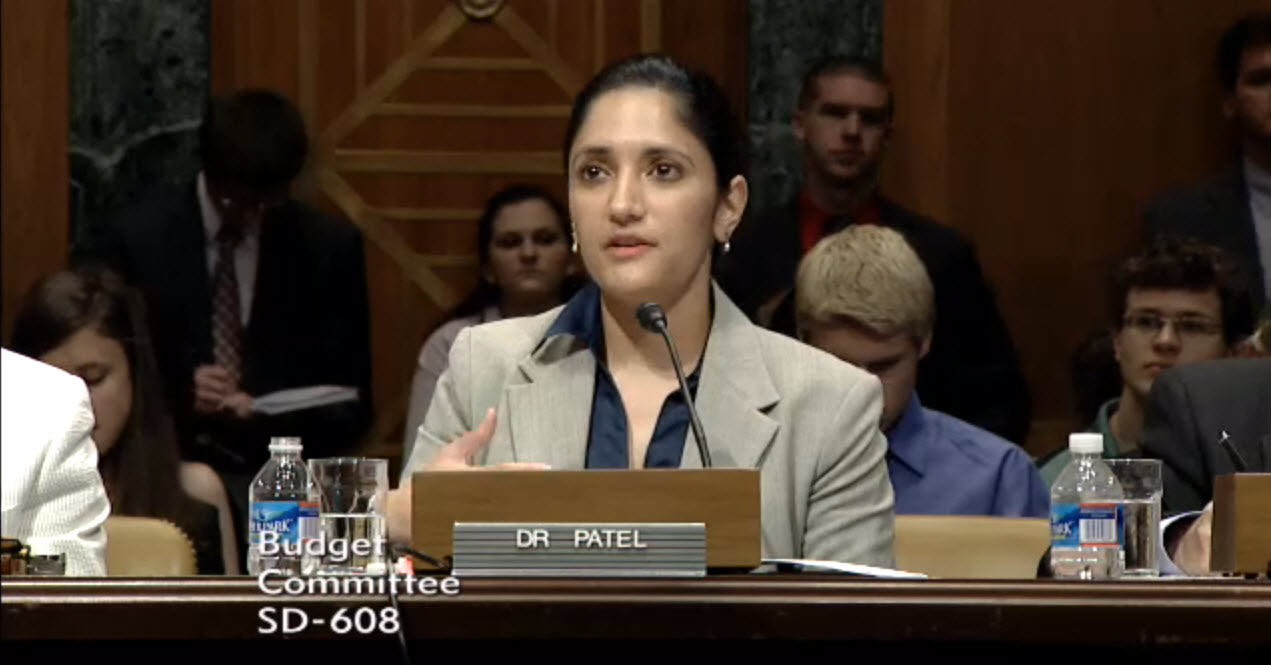“We must make difficult decisions in the coming years to encourage system-wide [health care] cost containment and sustainable health care transformation,” Kavita Patel told the Senate Budget Committee on Tuesday.

Patel, a fellow with the Engelberg Center for Health Care Reform at Brookings and a practicing primary care physician, testified on July 30 to the Senate Budget Committee on the recent progress and remaining challenges in containing health care costs.
Patel emphasized the importance of examining the variance of costs in the public (Medicare) and private sectors “across the continuum of care”—including in-patient services; outpatient (or ambulatory) care; pharmaceutical; medical equipment and other domains—to understand the current nature of health care costs and discover the most promising areas in which to curb overall growth.
In her testimony, Patel also reviewed the Affordable Care Act’s effects on spending, highlighting several provisions that have demonstrated cost savings, including Accountable Care Organizations, bundled payments for health services, and reducing costly inefficiencies due to readmissions and transitions in care.
Patel summarized nearly 20 cost savings opportunities across the seven sectors in the continuum of care (again, in-patient care, ambulatory care, prescription drugs, etc.), saying that:
it is important to look at the continuum of care and apply appropriate reforms that can have an impact within each sector. A combination of financing reforms that move us away from fee-for-service, delivery reforms that improve coordination in the inpatient and outpatient setting, and structural reforms that can lower the purchasing price for the goods and supplies of health care offer significant opportunities for savings.
Patel concluded her testimony by looking ahead to potential areas of cost savings in health care, notably transparency. “It is clear,” she said, “that as consumers face increased out of pocket spending and continue to bear more financial responsibility, there is a need for a systematic approach to increase transparency and then deal with the consequences of such transparency.”
Patel ended with a suggestion of how members of Congress might spend their August recess:
… as Congress recesses for the month of August, you will each hear directly from the most important witnesses to the ongoing cost challenges—patients. You will likely hear stories that highlight concerns over growing out of pocket costs, information asymmetry, and the sheer complexity of American health care. You will also hear stories of dedicated doctors, nurses, and health professionals who work to make sure that every patient receives the best care possible. You have the unique ability to translate these stories into policies that can build upon what is working and modify or eliminate anything that is not adding value to our care. By doing so, we will continue to slow cost growth and encourage greater economic security for our nation.
Download and read Kavita Patel’s entire testimony, including figures on national health care expenditures from 1970 to the present.
To learn more about the hearing on containing health care costs, visit the Senate Budget Committee’s website, where you can also watch a video of the hearing. Dr. Patel’s portion begins at 1 hour 37 minutes.
The Brookings Institution is committed to quality, independence, and impact.
We are supported by a diverse array of funders. In line with our values and policies, each Brookings publication represents the sole views of its author(s).

Commentary
Kavita Patel: Progress and Challenges in Containing Health Care Costs
July 31, 2013